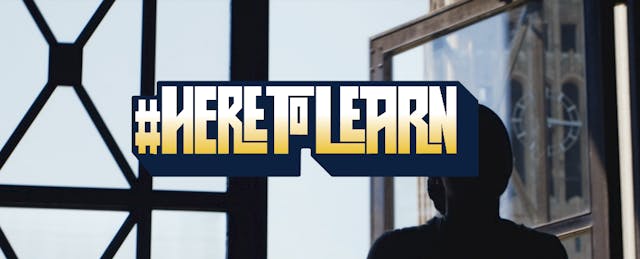Colleges have been searching for new ways to make use of the massive open online courses they created ever since the fad died down several years ago. The latest idea: encourage residential students to take them—not for credit, but to fulfill prerequisites or just for personal enrichment.
To understand the concept, it’s important to remember how much MOOCs have changed since they emerged about six years ago to great fanfare. The original pitch was that colleges would open some of their most popular courses to the world by putting lecture videos and interactive quizzes online for free. And they drew hundreds of thousands of people to sign up—though far fewer completed them.
Companies including Coursera and Udacity, as well as edX, a nonprofit created by Harvard University and MIT, partnered with well-known professors and colleges to offer these free courses. But over time, the free model has been difficult to keep up, and those organizations gradually began charging small fees to students who wanted to get a certificate of completion for a course, or who wanted to get access to live tutors or other support. And they now focus on developing courses in high-demand technical areas, such as data science.
In recent months, some colleges have made arrangements with the MOOC platforms they work with to let students and staff get free access to online certificates and microcredentials created by the universities.
This year the University of Michigan launched Michigan Online, a portal that lists the dozens of MOOCs the university has developed, and offers links where current students, faculty members and alumni can get full access to the certificates for free.
“We want students around campus to take those courses,” says James DeVaney, associate vice provost for academic innovation at the University of Michigan.
He imagines that some professors may assign parts of MOOCs as homework, or as a way to help students get up to speed on technical courses. For instance, a course on augmented and virtual reality could ask students to take the first week of Michigan’s MOOC on Python programming, DeVaney says. “There’s no hassle, there’s no code switching and there’s no payment.”
The university was already working with both Coursera and edX to build MOOCs, so it struck deals with both of them to give students free access to the courses on Michigan Online.
Coursera has made the same arrangement with about a dozen colleges and universities that it works with, as part of an effort it is calling Coursera for Partners.
So far the universities don’t pay anything for the access, but after the pilot phase Coursera officials will decide whether to charge for the service in the future, says Deanna Raineri, chief academic strategist at Coursera. “We really don’t know all of the use cases for this,” she adds, noting that they are watching to see what the campus communities gravitate to.
Amitai Jacobsen, principal of university partnerships at Coursera, said in some cases professors in the pilot project have asked students to take a course before coming to their class, as a prerequisite. At one campus, a kitchen staff member who is looking to become a manager took a business MOOC for professional development.
The idea behind Coursera for Partners originated at Duke University, which wanted to encourage on-campus use of the free courses it had developed.
As a result, Coursera created a Coursera for Duke portal that lists the online courses and specializations it has developed through Coursera, and that gives free access for Duke students and staff. “The way we’ve positioned this is co-curricular learning that complements what you do in courses,” says Matthew Rascoff, associate vice provost for digital education and innovation at Duke. “It allows you to level up in preparation for a course. It allows you to improve technical skills.”
Duke’s most popular MOOC among on-campus users is a statistics course within the university’s Statistics with R course series.
Among the other colleges piloting the approach include University of California at San Diego, Johns Hopkins University, Hong Kong University of Science and Technology, and three universities in Latin America that opened a portal together for their students. Coursera said a couple of other college partners are in the pilot project as well—with 11 colleges trying it in total.


